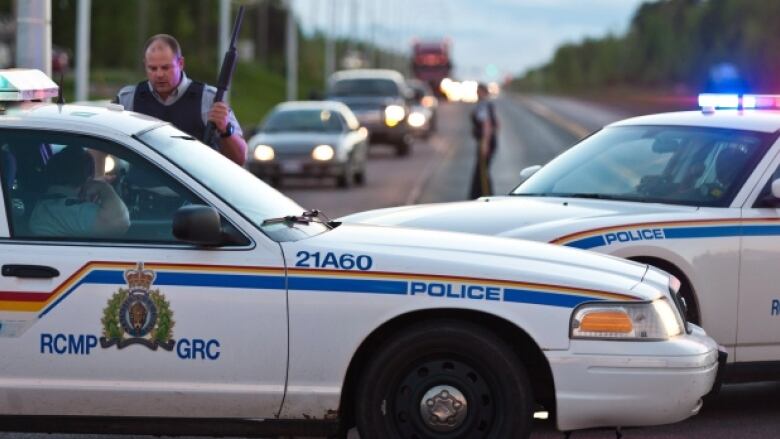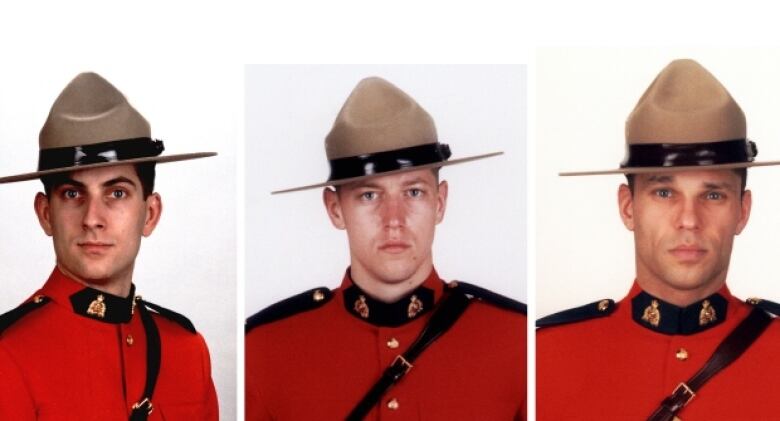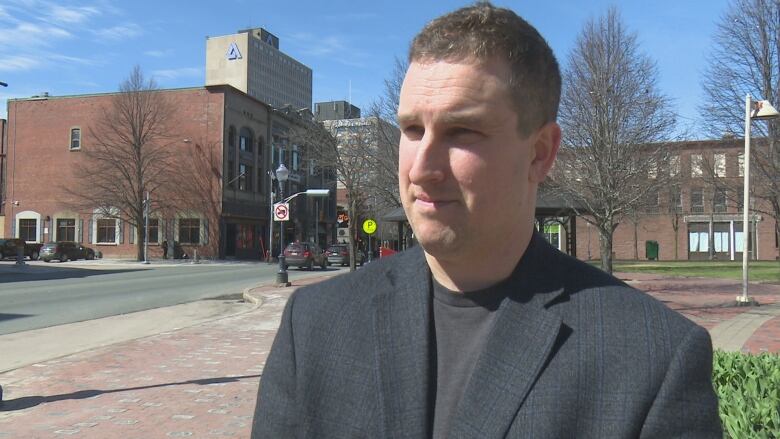'What were we doing before?': RCMP carbine implementation evaluated
RCMP says not all 64 recommendations from MacNeil report have been put in place but work continues

The RCMPhas improved conditions for frontline officers since the shooting deaths of three officers and wounding of two others in June 2014 in Moncton, but some work remains to be done.
For the past two weeks, the RCMP has been on trial in Moncton for failing to keep officers safe during the shootings in 2014. The national police force is charged with four health and safety violations under the Canada Labour Code.
Retired assistant commissioner Alphonse MacNeil was commissioned to evaluate the RCMP response to Justin Bourque's deadly attack. He published a report in December 2014, urging the force to act on 64 recommendations.
Much of the focus since the deadly attackhasboiled down to an issue of guns.The night of June 4, 2014, there were no carbines at the local RCMP detachment, andmany believe having theassault-style rifles could have made a difference as they have a longer range and accuracy than shotguns.
95% trained in Moncton
According to Louis-Philippe Thriault, an officer in Monctonwho worked the night of the shooting,and the national secretary of the Mounted Police Professional Association of Canada, about 95 per cent of front line members in Moncton have received carbine training since the shooting.
There is now a carbine in the patrol car of every one of those officers who have been trained, he says, on every shift in case they need to take it out.
"I'm probably taking out the carbine 20-30 times a year," says Thriault.

"And that makes me think, what were we doing before? If you have a barricaded person, or any kind of threat with a long gun, and all you have to respond to that is your pistol or your shotgun, which has a minimal range compared to most hunting rifles that you can acquire, and now especially in Moncton we've got major retail outlets that sell these hunting rifles or weapons."
Theriault says having the carbine, as well as the training to deal with an active shooter,has made a huge difference in how safe he feels on the job.
He also said in Monctonthere is now more hard body armour than officers, so if ever another incident were to happen, they could be given to people coming from outside to help.
65% trained nationally
The RCMP said carbine training is now mandatory for all cadets entering the RCMP's training cademy. The national police force says:
- More than 6,000 frontline members are trained on the use of the patrol carbines, whichrepresents more than 50 per cent of front line officers
- The objective is to have 65 per cent of frontline officers trained by the end of March 2018
- A total of 4,500 patrol carbines have been purchased
The training to deal with shooters like Justin Bourque, also known as the Immediate Action Rapid Deployment training (IARD), is now mandatory for all RCMP cadets to take and an indoor and outdoor course is mandatory for all frontline members to have by 2019.
The RCMP saidmore than 5,800 RCMP officers have been trained in IARD tactics nationally.

RCMP needs to have 'open-mind'
Thriault said he's satisfied with the training he's received, but wish it didn't come so late.
"I would have liked if the RCMP had moved faster in the past, learning from its provincial and municipal counterparts, or other police agencies in North America, and as well learn from other federal departments that have the same equipment and some of that same training."
"The RCMP needs to learn to have an open mind," he said. "If the OPP or another police force has been using a specific tool or weapon for 10 years, why not trust them.I don't think it requires six studies or 10-15 years."
The forcewill not say how many of the 64 recommendations are outstanding, norwhich they are, citingboth legaland procurement issues.
In an update given last year,the implementation of encrypted radio systems had a target date of spring 2018andThriault said that happened for the Codiacdetachment in the last few weeks.












_(720p).jpg)


 OFFICIAL HD MUSIC VIDEO.jpg)
.jpg)



























































































